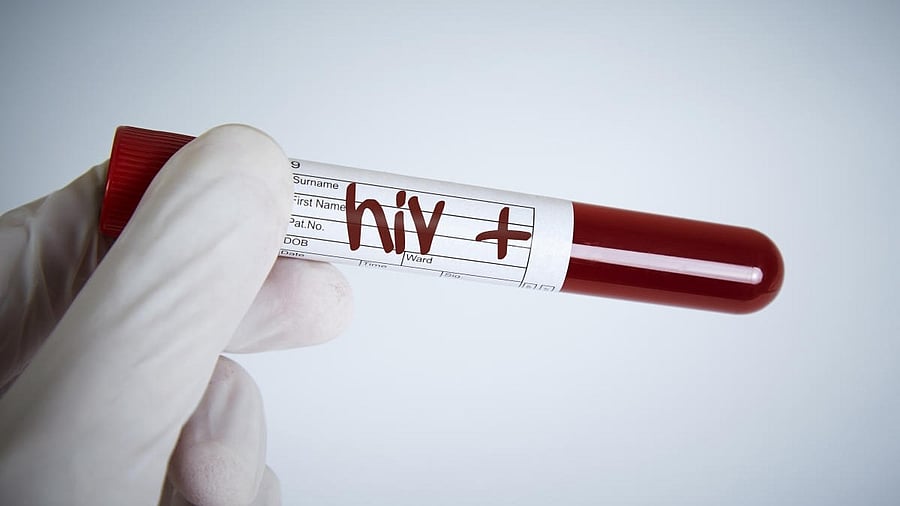
Representative image of blood sample with HIV+.
Credit: iStock Photo
Mumbai: The AIDS Society of India (ASI) has called upon the government of India, to include HIVST and Pre-Exposure Prophylaxis (PrEP) in its policies and programs without any further delay saying that the clock is ticking.
The World Health Organization (WHO) recommended HIV self-testing as part of HIV care cascade as it is an important approach to address gaps in HIV diagnoses, especially among key populations in 2019.
Dr Ishwar Gilada, the President-Emeritus, AIDS Society of India (ASI) and Governing Council Member, International AIDS Society (IAS), has made a formal appeal to the Centre.
“As HIV testing is the key entry point to HIV care cascade, it is worrisome that in India one in five people living with HIV do not know their HIV status. India can no more keep sheltering under the COVID-19 pandemic for negatively impacting the pace of HIV testing and the control program. We need to ensure that 100% of people living with HIV know their status so that they can receive full cascade of HIV care services and stay virally suppressed (undetectable viral load) – which is essential for them to live full and healthy lives – as well as to end AIDS as “undetectable equals untransmittable equals zero”,” he said.
Almost half of the countries (98) have included HIVST policies, and one-fourth nations globally (52) are routinely implementing it. Self-tests for COVID-19, pregnancy, diabetes,etc have not only proven successful in increasing the uptake of tests but also how it links to care services.
“There is no reason at all to delay full scale rollout of HIVST in India and other countries that are missing leveraging upon this evidence-based intervention,” said Dr Gilada.